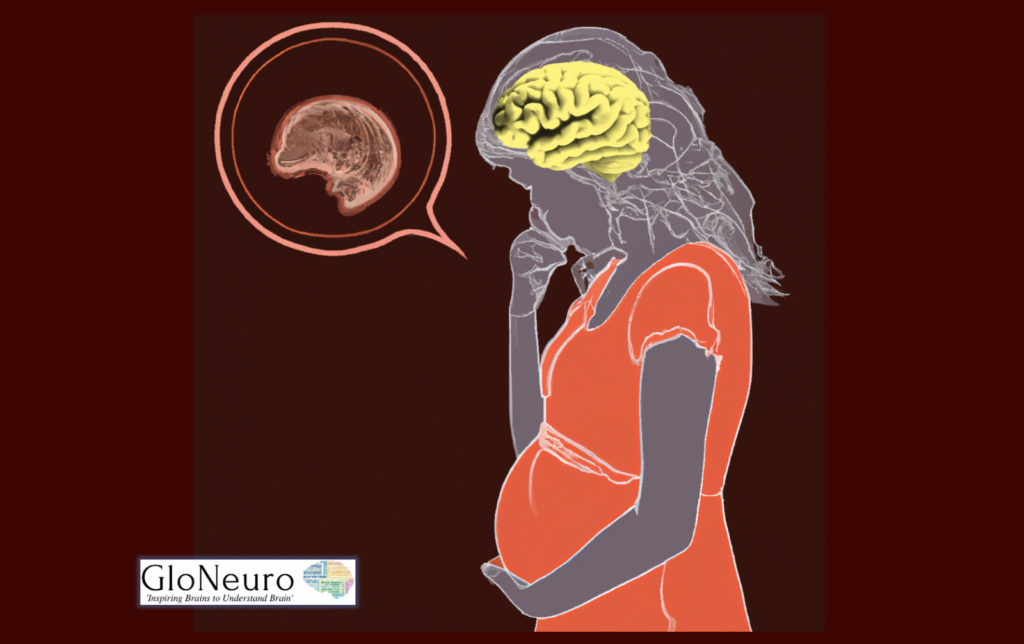Now, let’s prepare to embark on a thrilling scientific journey that unravels the mysteries of one of the most complex and enigmatic neurological disorders of our time: #Alzheimer’s disease. In today’s captivating GloNeuro blog, we delve into the cutting-edge research and groundbreaking advancements that are shaping our understanding of this devastating condition. From promising therapeutic strategies to innovative approaches to care, we invite you to join us as we unlock the secrets and explore the frontiers of #Alzheimer’sDisease #research. Get ready to be captivated, informed, and inspired as we delve into the ever-evolving landscape of neuroscience and seek answers that will reshape the lives of millions.
Don’t forget to tag your friends and fellow neuroscientists who are interested in #AlzheimersDisease research and updates…
Welcome, neuroscientists, brain health enthusiasts and aspiring students, to a thought-provoking exploration of the current state of Alzheimer’s disease. In this GloNeuro article, we will delve into the latest scientific advancements in understanding this complex neurodegenerative condition, along with emerging therapeutic strategies and innovative approaches to care. Please join us on this enlightening journey as we navigate the ever-evolving landscape of Alzheimer’s research and shed light on the path towards improved treatments and enhanced quality of life for those affected.
Alzheimer’s disease remains a pressing global health challenge, affecting millions of individuals worldwide. According to World Health Organisation (WHO) data, currently more than 55 million people have dementia worldwide, over 60% of whom live in low-and middle-income countries. Every year, there are nearly 10 million new cases. Alzheimer disease is the most common form and may contribute to 60–70% of cases. Other forms include vascular dementia, dementia with Lewy bodies (abnormal deposits of protein inside nerve cells), and a group of diseases that contribute to frontotemporal dementia (degeneration of the frontal lobe of the brain). Its impact on memory, cognition, and daily functioning disrupts lives, placing a heavy burden on patients, families, and healthcare systems. However, in recent years, a renewed focus on research and development has led to significant progress in understanding the underlying mechanisms of the disease and devising potential interventions. Scientists have made remarkable strides in unraveling the intricate complexities of Alzheimer’s disease. By exploring the role of beta-amyloid plaques and tau protein tangles, two hallmark pathological features of the disease, researchers have gained deeper insights into the molecular mechanisms underlying neuronal damage and cognitive decline. Additionally, advancements in neuroimaging techniques and biomarker identification have facilitated earlier and more accurate diagnosis, paving the way for timely intervention.
Pharmaceutical research has witnessed exciting breakthroughs in the pursuit of disease-modifying treatments for Alzheimer’s. Innovative therapeutic approaches aim to prevent, slow down, or halt the progression of the disease. From anti-amyloid antibodies to tau-targeted therapies and neuroprotective agents, various drug candidates are undergoing rigorous clinical trials. These investigations offer hope for more effective treatments that could alter the trajectory of the disease and improve patient outcomes. Recognizing the heterogeneity of Alzheimer’s disease, researchers are turning to precision medicine approaches to personalize treatment strategies. By identifying specific genetic and molecular factors that contribute to an individual’s disease progression, clinicians can tailor interventions to target the unique characteristics of each patient. This personalized approach holds great promise for optimizing therapeutic outcomes and minimizing potential side effects.
While pharmacological interventions are crucial, non-pharmacological approaches play a pivotal role in managing Alzheimer’s disease. Cognitive stimulation programs, physical exercise regimens, and social engagement initiatives have shown promising results in improving cognitive function, enhancing quality of life, and delaying the onset of symptoms. These interventions not only provide symptomatic relief but also promote overall brain health and resilience. Early diagnosis is critical in Alzheimer’s disease, as interventions are most effective in the early stages of the condition. Advancements in neuroimaging techniques, such as positron emission tomography (PET) scans and cerebrospinal fluid biomarkers, enable more accurate detection of pathological changes in the brain. These diagnostic tools help identify individuals at risk or in the prodromal stages, allowing for timely intervention and the potential to slow disease progression.

Alzheimer’s disease profoundly impacts not only patients but also their families and caregivers. Caregivers play a crucial role in providing support, managing daily activities, and ensuring the well-being of their loved ones. Recognizing the unique challenges they face, support networks, educational programs, and respite services are essential in empowering caregivers and alleviating the burden associated with caregiving. Comprehensive care for individuals with Alzheimer’s disease extends beyond medical interventions. Holistic approaches that address psychological, social, and emotional well-being are crucial for enhancing quality of life. Multidisciplinary teams comprising neurologists, psychologists, social workers, and occupational therapists collaborate to develop personalized care plans that cater to the unique needs of each individual.
While the quest for a cure continues, it is essential to focus on improving the lives of those living with Alzheimer’s disease. Creating dementia-friendly environments, promoting community engagement, and implementing assistive technologies are some initiatives aimed at enhancing independence and social inclusion. Empowering individuals with Alzheimer’s to actively participate in their care decisions fosters a sense of dignity and autonomy. Despite significant progress, challenges remain in the field of Alzheimer’s research. Clinical trials face complexities, including patient recruitment, trial design, and the need for long-term follow-up. Additionally, a better understanding of the complex interactions between genetic, environmental, and lifestyle factors is essential for more accurate risk prediction and personalized interventions. Continued support from funding agencies, collaborations between researchers, and advocacy efforts are vital to propel the field forward.
Interestingly, as we reflect on the current status of Alzheimer’s disease, it is evident that significant strides have been made in understanding its underlying mechanisms and developing potential therapeutic interventions. From precision medicine to non-pharmacological approaches and holistic care, the landscape of Alzheimer’s research and care continues to evolve. By fostering interdisciplinary collaborations, promoting early detection, and prioritizing caregiver support, we can collectively work towards improving the lives of those affected by this debilitating disease. Together, we can forge a future where effective treatments and compassionate care provide hope and resilience for individuals and families grappling with Alzheimer’s disease.
References
- Alzheimer’s Association. 2019 Alzheimer’s disease facts and figures. Alzheimer’s & dementia. 2019 Mar;15(3):321-87.
- World Health Organisation (WHO) (2023) Dementia. Accessed at https://www.who.int/news-room/fact-sheets/detail/dementia on 17 June 2023.
- Scheltens P, De Strooper B, Kivipelto M, Holstege H, Chételat G, Teunissen CE, Cummings J, van der Flier WM. Alzheimer’s disease. The Lancet. 2021 Apr 24;397(10284):1577-90.
- Ghosh S, Durgvanshi S, Agarwal S, Raghunath M, Sinha JK. Current status of drug targets and emerging therapeutic strategies in the management of Alzheimer’s disease. Current Neuropharmacology. 2020 Sep 1;18(9):883-903.
- Murdock MH, Tsai LH. Insights into Alzheimer’s disease from single-cell genomic approaches. Nature Neuroscience. 2023 Jan 2:1-5.
Explore New Articles from GloNeuro
Empowering Neuroscience with AI
Unraveling the Complexities of Synapse Strength for Improved Brain Health
In a groundbreaking study, a team of scientists developed a novel approach that combines computational and biological methods to investigate synaptic plasticity. Their innovative technique not only enhances our understanding of the underlying mechanisms of learning but also offers new avenues for studying the brain.



